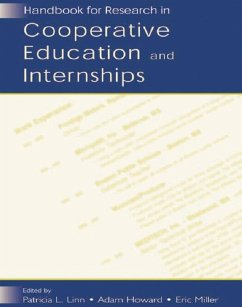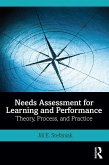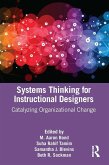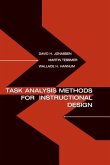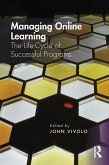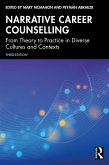Handbook for Research in Cooperative Education and Internships (eBook, PDF)
Redaktion: Linn, Patricia L.; Miller, Eric; Howard, Adam
84,95 €
84,95 €
inkl. MwSt.
Sofort per Download lieferbar

42 °P sammeln
84,95 €
Als Download kaufen

84,95 €
inkl. MwSt.
Sofort per Download lieferbar

42 °P sammeln
Jetzt verschenken
Alle Infos zum eBook verschenken
84,95 €
inkl. MwSt.
Sofort per Download lieferbar
Alle Infos zum eBook verschenken

42 °P sammeln
Handbook for Research in Cooperative Education and Internships (eBook, PDF)
Redaktion: Linn, Patricia L.; Miller, Eric; Howard, Adam
- Format: PDF
- Merkliste
- Auf die Merkliste
- Bewerten Bewerten
- Teilen
- Produkt teilen
- Produkterinnerung
- Produkterinnerung

Bitte loggen Sie sich zunächst in Ihr Kundenkonto ein oder registrieren Sie sich bei
bücher.de, um das eBook-Abo tolino select nutzen zu können.
Hier können Sie sich einloggen
Hier können Sie sich einloggen
Sie sind bereits eingeloggt. Klicken Sie auf 2. tolino select Abo, um fortzufahren.

Bitte loggen Sie sich zunächst in Ihr Kundenkonto ein oder registrieren Sie sich bei bücher.de, um das eBook-Abo tolino select nutzen zu können.
Provides cooperative education and internship professionals and researchers design, carry out, and disseminate quality research and evaluation studies. Highlights key programs and shows how to demonstrate sound learning outcomes.
- Geräte: PC
- mit Kopierschutz
- eBook Hilfe
- Größe: 4.58MB
Andere Kunden interessierten sich auch für
![Instructional Design for Organizational Justice (eBook, PDF) Instructional Design for Organizational Justice (eBook, PDF)]() Lisa A. GiacumoInstructional Design for Organizational Justice (eBook, PDF)54,95 €
Lisa A. GiacumoInstructional Design for Organizational Justice (eBook, PDF)54,95 €![Needs Assessment for Learning and Performance (eBook, PDF) Needs Assessment for Learning and Performance (eBook, PDF)]() Jill E. StefaniakNeeds Assessment for Learning and Performance (eBook, PDF)42,95 €
Jill E. StefaniakNeeds Assessment for Learning and Performance (eBook, PDF)42,95 €![Systems Thinking for Instructional Designers (eBook, PDF) Systems Thinking for Instructional Designers (eBook, PDF)]() Systems Thinking for Instructional Designers (eBook, PDF)40,95 €
Systems Thinking for Instructional Designers (eBook, PDF)40,95 €![Task Analysis Methods for Instructional Design (eBook, PDF) Task Analysis Methods for Instructional Design (eBook, PDF)]() David H. JonassenTask Analysis Methods for Instructional Design (eBook, PDF)45,95 €
David H. JonassenTask Analysis Methods for Instructional Design (eBook, PDF)45,95 €![Career Counselling (eBook, PDF) Career Counselling (eBook, PDF)]() Career Counselling (eBook, PDF)55,95 €
Career Counselling (eBook, PDF)55,95 €![Managing Online Learning (eBook, PDF) Managing Online Learning (eBook, PDF)]() Managing Online Learning (eBook, PDF)36,95 €
Managing Online Learning (eBook, PDF)36,95 €![Narrative Career Counselling (eBook, PDF) Narrative Career Counselling (eBook, PDF)]() Narrative Career Counselling (eBook, PDF)32,95 €
Narrative Career Counselling (eBook, PDF)32,95 €-
-
-
Provides cooperative education and internship professionals and researchers design, carry out, and disseminate quality research and evaluation studies. Highlights key programs and shows how to demonstrate sound learning outcomes.
Hinweis: Dieser Artikel kann nur an eine deutsche Lieferadresse ausgeliefert werden.
Dieser Download kann aus rechtlichen Gründen nur mit Rechnungsadresse in A, B, BG, CY, CZ, D, DK, EW, E, FIN, F, GR, HR, H, IRL, I, LT, L, LR, M, NL, PL, P, R, S, SLO, SK ausgeliefert werden.
Hinweis: Dieser Artikel kann nur an eine deutsche Lieferadresse ausgeliefert werden.
Produktdetails
- Produktdetails
- Verlag: Taylor & Francis eBooks
- Seitenzahl: 480
- Erscheinungstermin: 17. Oktober 2003
- Englisch
- ISBN-13: 9781135638146
- Artikelnr.: 38242775
- Verlag: Taylor & Francis eBooks
- Seitenzahl: 480
- Erscheinungstermin: 17. Oktober 2003
- Englisch
- ISBN-13: 9781135638146
- Artikelnr.: 38242775
- Herstellerkennzeichnung Die Herstellerinformationen sind derzeit nicht verfügbar.
Patricia L. Linn, Adam Howard, Eric Miller
Contents: Preface. Part I: Cooperative Education and Internships in
Context.A. Howard, Cooperative Education and Internships at the Threshold
of the Twenty-First Century. P.L. Linn, Theories About Learning and
Development in Cooperative Education and Internships. Part II: Beginning
Phase of Research Projects.G. Grosjean, Getting Started and Achieving
Buy-In: Co-op Education Is Continuous, Contextualized Learning. F. Ricks,
Identifying Resources: Ethics in Cooperative Education. C. Eames,
Researching in Cooperative Education: How a Practitioner Met the Challenge.
Part III: Methods and Analysis.P.L. Linn, Combining Quantitative and
Qualitative Data: A Lifespan Study of Cooperative Education. G. Van Gyn,
Choosing a Research Instrument: Investigating the Benefits of Cooperative
Education. P. Gochenauer, A. Winter, Analyzing Data With Statistics:
Business Internship Effects on Postgraduate Employment. N. Johnston, N.
Angerilli, N. Gajdamaschko, How to Measure Complex Learning Processes: The
Nature of Learning in Cooperative Education. M.L. Maynard, Correlation
Analysis in a Natural Experiment Design: Seeking the Opportune Grade Point
Average Cutoff for Internships. A. Howard, T. Haugsby, Issues in Case Study
Methodology: Examining the Influences of Class Status on Cooperative
Education Experiences. Part IV: Dissemination, Use, and Application.N.
Fogg, M. Putnam, Considering the Needs of Different Stakeholders: The
Impact of Co-op Job Quality on Post-Graduation Earnings. M. Mayo, Program
Evaluation in a Business Environment: An Employer's Journey With
Cooperative Education. B.K. Baker, Dissemination of Research to Reform
Practice: Fishing (and Lawyering) to Learn. P.M. Rowe, Writing for
Publication: Preparation of the Research Report. Part V: Overriding
Considerations.R.K. Tener, Using Theory in Research I: Understanding the
Learning Experienced in Structured Internships in Construction Engineering.
E. Miller, Using Theory in Research II: Atypical Cross-Cultural Experiences
That Lead to Growth. C. Cates, B. LeMaster, Program Assessment I: A Focused
Approach to Measuring Learning Outcomes. G. Lee-Thomas, A. Anderson,
Program Assessment II: Cooperative Education Objectives Nestled in ABET
EC2000 Criterion 3: a-k. A. Howard, Ethical Issues in Experimental and
Qualitative Research. Part VI: Implications for Research and Practice.P.L.
Linn, E. Miller, Implications for Research and Practice.
Context.A. Howard, Cooperative Education and Internships at the Threshold
of the Twenty-First Century. P.L. Linn, Theories About Learning and
Development in Cooperative Education and Internships. Part II: Beginning
Phase of Research Projects.G. Grosjean, Getting Started and Achieving
Buy-In: Co-op Education Is Continuous, Contextualized Learning. F. Ricks,
Identifying Resources: Ethics in Cooperative Education. C. Eames,
Researching in Cooperative Education: How a Practitioner Met the Challenge.
Part III: Methods and Analysis.P.L. Linn, Combining Quantitative and
Qualitative Data: A Lifespan Study of Cooperative Education. G. Van Gyn,
Choosing a Research Instrument: Investigating the Benefits of Cooperative
Education. P. Gochenauer, A. Winter, Analyzing Data With Statistics:
Business Internship Effects on Postgraduate Employment. N. Johnston, N.
Angerilli, N. Gajdamaschko, How to Measure Complex Learning Processes: The
Nature of Learning in Cooperative Education. M.L. Maynard, Correlation
Analysis in a Natural Experiment Design: Seeking the Opportune Grade Point
Average Cutoff for Internships. A. Howard, T. Haugsby, Issues in Case Study
Methodology: Examining the Influences of Class Status on Cooperative
Education Experiences. Part IV: Dissemination, Use, and Application.N.
Fogg, M. Putnam, Considering the Needs of Different Stakeholders: The
Impact of Co-op Job Quality on Post-Graduation Earnings. M. Mayo, Program
Evaluation in a Business Environment: An Employer's Journey With
Cooperative Education. B.K. Baker, Dissemination of Research to Reform
Practice: Fishing (and Lawyering) to Learn. P.M. Rowe, Writing for
Publication: Preparation of the Research Report. Part V: Overriding
Considerations.R.K. Tener, Using Theory in Research I: Understanding the
Learning Experienced in Structured Internships in Construction Engineering.
E. Miller, Using Theory in Research II: Atypical Cross-Cultural Experiences
That Lead to Growth. C. Cates, B. LeMaster, Program Assessment I: A Focused
Approach to Measuring Learning Outcomes. G. Lee-Thomas, A. Anderson,
Program Assessment II: Cooperative Education Objectives Nestled in ABET
EC2000 Criterion 3: a-k. A. Howard, Ethical Issues in Experimental and
Qualitative Research. Part VI: Implications for Research and Practice.P.L.
Linn, E. Miller, Implications for Research and Practice.
Contents: Preface. Part I: Cooperative Education and Internships in
Context.A. Howard, Cooperative Education and Internships at the Threshold
of the Twenty-First Century. P.L. Linn, Theories About Learning and
Development in Cooperative Education and Internships. Part II: Beginning
Phase of Research Projects.G. Grosjean, Getting Started and Achieving
Buy-In: Co-op Education Is Continuous, Contextualized Learning. F. Ricks,
Identifying Resources: Ethics in Cooperative Education. C. Eames,
Researching in Cooperative Education: How a Practitioner Met the Challenge.
Part III: Methods and Analysis.P.L. Linn, Combining Quantitative and
Qualitative Data: A Lifespan Study of Cooperative Education. G. Van Gyn,
Choosing a Research Instrument: Investigating the Benefits of Cooperative
Education. P. Gochenauer, A. Winter, Analyzing Data With Statistics:
Business Internship Effects on Postgraduate Employment. N. Johnston, N.
Angerilli, N. Gajdamaschko, How to Measure Complex Learning Processes: The
Nature of Learning in Cooperative Education. M.L. Maynard, Correlation
Analysis in a Natural Experiment Design: Seeking the Opportune Grade Point
Average Cutoff for Internships. A. Howard, T. Haugsby, Issues in Case Study
Methodology: Examining the Influences of Class Status on Cooperative
Education Experiences. Part IV: Dissemination, Use, and Application.N.
Fogg, M. Putnam, Considering the Needs of Different Stakeholders: The
Impact of Co-op Job Quality on Post-Graduation Earnings. M. Mayo, Program
Evaluation in a Business Environment: An Employer's Journey With
Cooperative Education. B.K. Baker, Dissemination of Research to Reform
Practice: Fishing (and Lawyering) to Learn. P.M. Rowe, Writing for
Publication: Preparation of the Research Report. Part V: Overriding
Considerations.R.K. Tener, Using Theory in Research I: Understanding the
Learning Experienced in Structured Internships in Construction Engineering.
E. Miller, Using Theory in Research II: Atypical Cross-Cultural Experiences
That Lead to Growth. C. Cates, B. LeMaster, Program Assessment I: A Focused
Approach to Measuring Learning Outcomes. G. Lee-Thomas, A. Anderson,
Program Assessment II: Cooperative Education Objectives Nestled in ABET
EC2000 Criterion 3: a-k. A. Howard, Ethical Issues in Experimental and
Qualitative Research. Part VI: Implications for Research and Practice.P.L.
Linn, E. Miller, Implications for Research and Practice.
Context.A. Howard, Cooperative Education and Internships at the Threshold
of the Twenty-First Century. P.L. Linn, Theories About Learning and
Development in Cooperative Education and Internships. Part II: Beginning
Phase of Research Projects.G. Grosjean, Getting Started and Achieving
Buy-In: Co-op Education Is Continuous, Contextualized Learning. F. Ricks,
Identifying Resources: Ethics in Cooperative Education. C. Eames,
Researching in Cooperative Education: How a Practitioner Met the Challenge.
Part III: Methods and Analysis.P.L. Linn, Combining Quantitative and
Qualitative Data: A Lifespan Study of Cooperative Education. G. Van Gyn,
Choosing a Research Instrument: Investigating the Benefits of Cooperative
Education. P. Gochenauer, A. Winter, Analyzing Data With Statistics:
Business Internship Effects on Postgraduate Employment. N. Johnston, N.
Angerilli, N. Gajdamaschko, How to Measure Complex Learning Processes: The
Nature of Learning in Cooperative Education. M.L. Maynard, Correlation
Analysis in a Natural Experiment Design: Seeking the Opportune Grade Point
Average Cutoff for Internships. A. Howard, T. Haugsby, Issues in Case Study
Methodology: Examining the Influences of Class Status on Cooperative
Education Experiences. Part IV: Dissemination, Use, and Application.N.
Fogg, M. Putnam, Considering the Needs of Different Stakeholders: The
Impact of Co-op Job Quality on Post-Graduation Earnings. M. Mayo, Program
Evaluation in a Business Environment: An Employer's Journey With
Cooperative Education. B.K. Baker, Dissemination of Research to Reform
Practice: Fishing (and Lawyering) to Learn. P.M. Rowe, Writing for
Publication: Preparation of the Research Report. Part V: Overriding
Considerations.R.K. Tener, Using Theory in Research I: Understanding the
Learning Experienced in Structured Internships in Construction Engineering.
E. Miller, Using Theory in Research II: Atypical Cross-Cultural Experiences
That Lead to Growth. C. Cates, B. LeMaster, Program Assessment I: A Focused
Approach to Measuring Learning Outcomes. G. Lee-Thomas, A. Anderson,
Program Assessment II: Cooperative Education Objectives Nestled in ABET
EC2000 Criterion 3: a-k. A. Howard, Ethical Issues in Experimental and
Qualitative Research. Part VI: Implications for Research and Practice.P.L.
Linn, E. Miller, Implications for Research and Practice.
